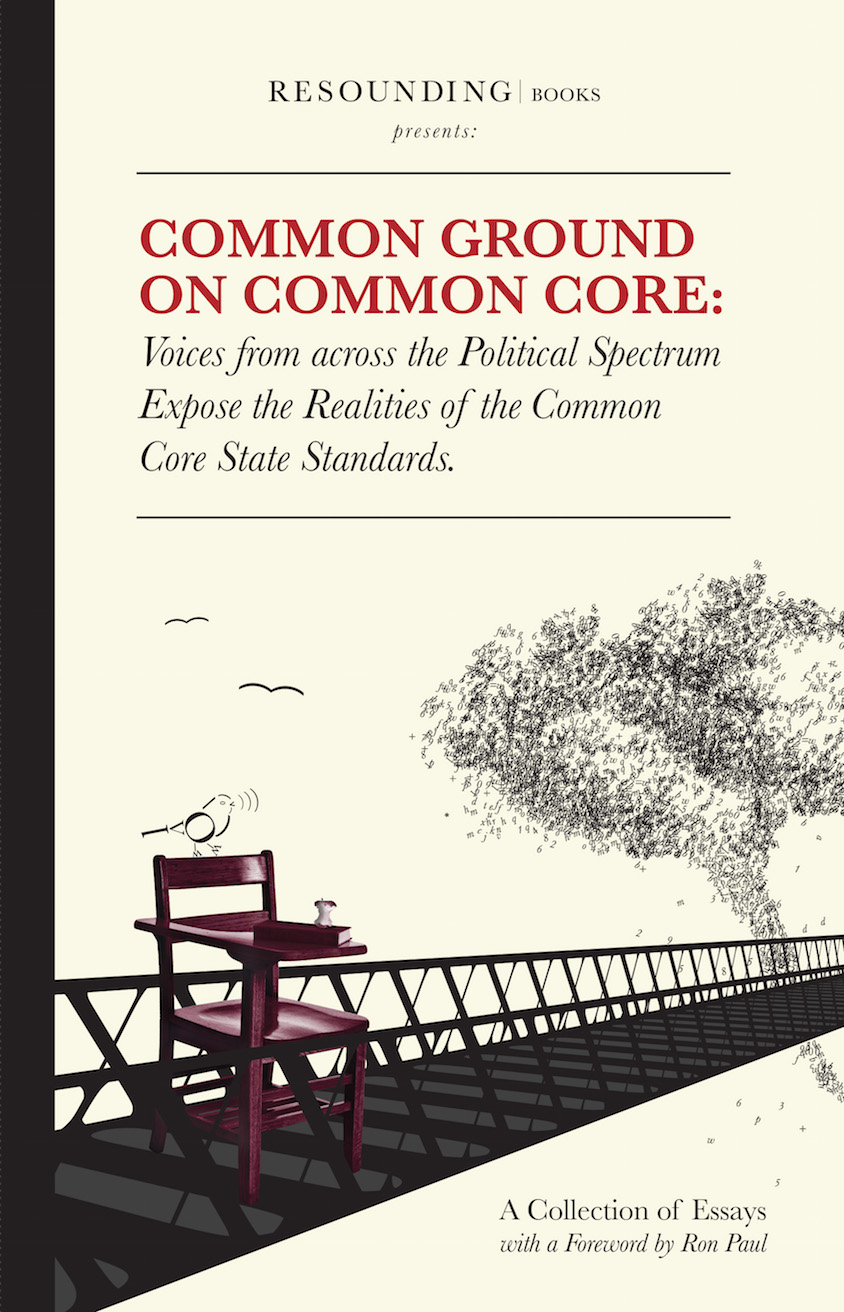Common Core Test Refuseniks
The time for Common Core tests, devised under contract by the U.S. Department of Education by two private consortia PARCC (Partnership for Assessment of Readiness for College and Careers) and SBAC (Smarter Balanced Assessment Consortium), has finally come.
The tests, according to Secretary of Education Arne Duncan, would be far superior to the “one-shot, year-end bubble tests” of old because they would test “critical thinking skills and complex student learning.”
These tests differ from previous ones that measured students’ knowledge in such subjects as history and science, and measured their skills in math and writing. No longer are correct answers enough. The new tests favor math problems that complicate solutions with charts, graphics, and stories, causing tears for students who had once excelled in the subject. Sample English Language Arts test questions for eleventh-graders, as I described, involved reading, group discussions, and writing letters about nuclear power, “sustainable fashion,” public art, and meditation. To test “listening skills” students listened to a computer-generated voice reciting information about Ferris wheels, arachnids, and fluoridation. (Alas, in the interests of time—because the SBAC test takes 8.5 hours and the PARCC test takes over 10 hours—some of the open-ended “critical thinking” questions have been replaced by bubble-in answers.)
While test questions about Ferris wheels and spiders seem to be below grade level for high school juniors, assessments for the lower grades seem to be too advanced. Gretchen Logue, a Missouri activist, reading teacher, and mother of a sixth-grader, evaluated the sixth-grade reading test and found it to be above grade level, and promptly withdrew her child from testing.
More Test Anxiety
Although tests are sold as having the advantage of not requiring “test prep” they are producing much anxiety. (Perhaps there is more anxiety involved in taking unpredictable and open-ended tests. After all, there is comfort in getting all the flash cards right.) Some schools have taken to bribing students with incentives like the chance to skip final exams in English and math, or to participate in drawings for iPads. One girl in a PBS news segment described students’ frustrations with lack of clear-cut answers and the need for advanced technical skills, such as “dragging and dropping.” The school superintendent in the same PBS video, however, insisted that Common Core testing makes things more racially equitable.
Technical difficulties with the tests abound. Ear buds must be worn and be working. An eleven-year-old student taking the practice test in Ohio had difficulty logging on. The Los Angeles Unified School District, the nation’s second largest, experienced problems with slow connectivity and a website crashing when a practice test was given. As a result, the state school board has decided not to use the tests in its accountability measurements this year. Other states with technical problems have resorted to paper-and-pencil tests—with bubbles to fill in.
According to California’s FlashReport, education analyst Steven Rasmussen found that, “based on publicly available sample math questions, the Common Core tests: ‘Violate the standards they are supposed to assess; cannot be adequately answered by students with the technology they are required to use; use confusing and hard-to-use interfaces; or are to [be] graded in such a way that incorrect answers are identified as correct and correct answers as incorrect.’”
The technology also brings concerns about privacy. The Smarter Balanced Assessment Consortium sent a guidance memo to schools instructing them on how to do “social media monitoring” during the field test. As Jane Robbins wrote recently, it appears that Pearson, the multinational company that administers the PARCC test, has been tracking student comments on social media through its security company. Robbins, an attorney and senior fellow at the American Principles Project, raises questions of concern about privacy, and students carrying life-long records that unfairly brand them as cheaters.
The New Line of Attack
The first line of attack, Common Core withdrawal bills, worked in a few states and failed in others. In still other states, deceptive legislators simple rebranded Common Core, by slapping a new local label onto almost unchanged standards.
So a grassroots movement of “opting out” has taken hold in Connecticut, New Jersey, Louisiana, New York, Mississippi, and elsewhere. The resistance is coming from the political right and the political left. Those on the right are opposed to federal testing that measures emotional responses more than knowledge and infringes on privacy. The left often rejects accountability standards. The national United Opt Out movement, self-described as one of “unyielding resistance to corporate ed reform,” demands an “equitably funded, democratically based, anti-racist, desegregated public school system for all.” Paula Bolyard, noting that students’ complaints often echo those of teachers unions, namely about school choice and “corporatist” Republicans, warns that teachers unions may be “community organizing our kids under the guise of Common Core opposition for students.”
Some school districts, in the Rochester, New York, and Buffalo, New York, areas are considering boycotts.
Some parent activists, such as Gretchen Logue and Anne Gassel of the Missouri Coalition Against Common Core, have filed suit. Logue and Gassel had joined with former Republican gubernatorial candidate Fred Sauer as plaintiffs against Governor Jay Nixon and other state and education officials. The judge has ruled that the state’s membership fees to the federally funded Smarter Balanced Assessment Consortium is unconstitutional. That ruling is having reverberations already. In Missouri, a house budget committee has stripped $4.5 million in the state’s budget proposal for membership in SBAC. In North Dakota, Rep. Jim Kasper (R) is “prodding” the state attorney general about the constitutionality regarding the pact with SBAC, after having failed to get approval for his anti-Common Core bill last month.
In New York State, a bill called “The Common Core Parental Refusal Act” was introduced on March 17. It would require school districts to notify parents of their right to refuse their third-to-eighth-grade children to take Common Core tests, with no penalties. Such a bill was also proposed in Maine last month. A similar bill in Arkansas, introduced in the House, failed before the Senate Education Committee.
In this year of ballyhooed roll-out, only 18 of the original 31 states signed up for the SBAC tests will be administering it. Only 11 (plus Washington, D.C.) of the 26 signed up for the PARC test will administer it. (Some states had originally signed up for both consortia.) Common Core proponents, as quoted in the Hechinger Report are not dissuaded. They imply: We haven’t had enough time (it’s the first year) or money (the product has to be “refined”).
It doesn’t look like parents, activists, and lawmakers will buy it.
EDITORS NOTE: This column originally appeared on the Selous Foundation for Public Policy Research website.
















